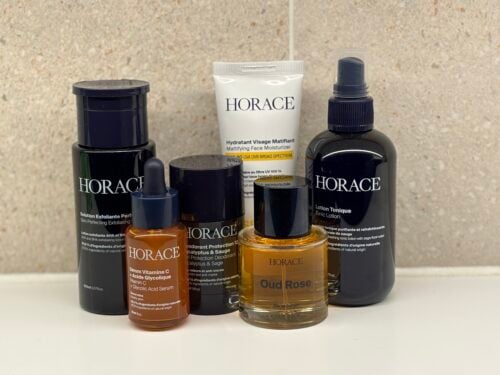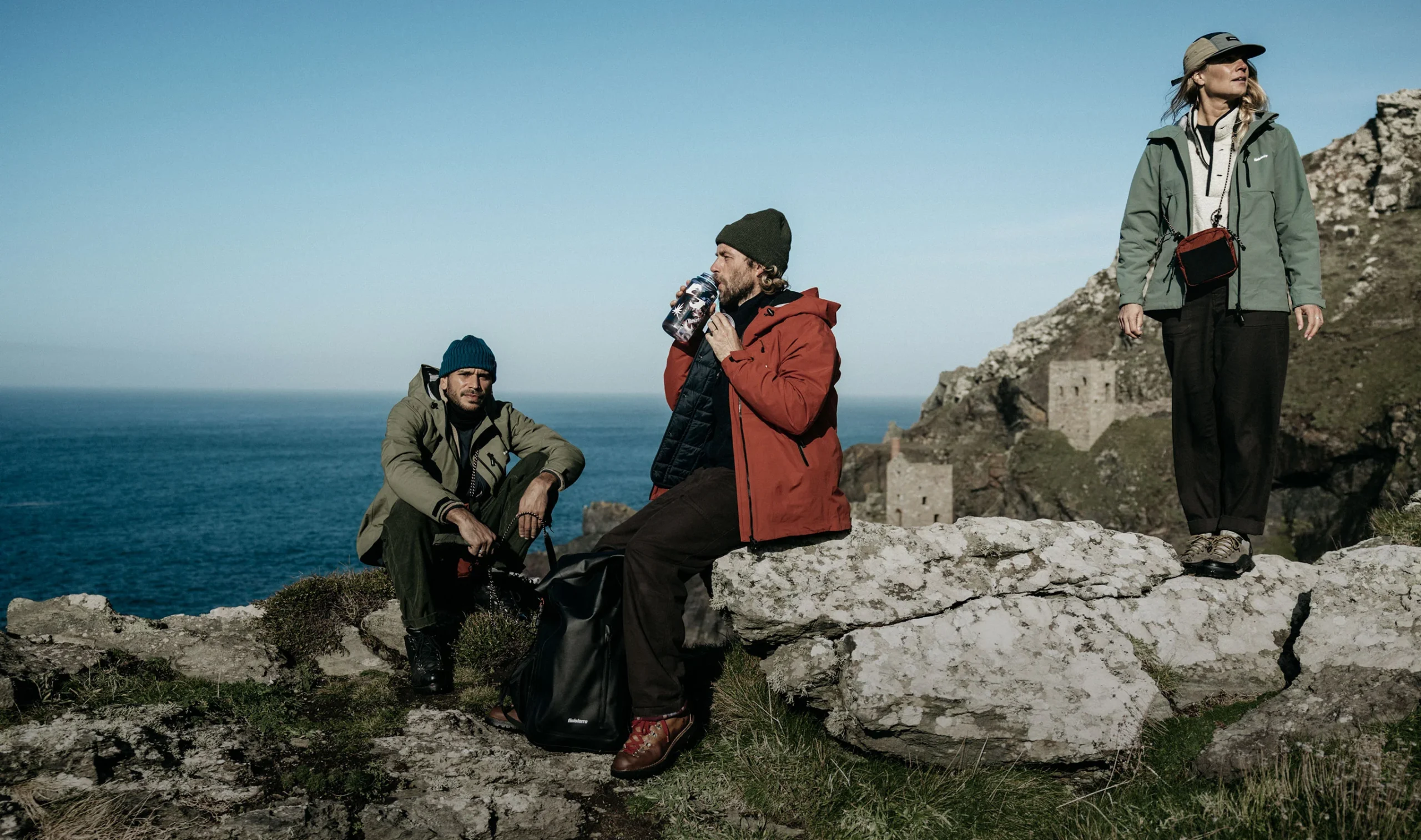Horace Skincare Review: Why Horace Is Dominating The Modern Man’s Bathroom Cabinet
Feb 21, 2026Barbershops as a Gateway to Elevating Reproductive Health for Black Men – Talking About Men’s Health
- Aug 27, 2025
- 0 Comments
845

Barbershops as a Gateway to Elevating Reproductive Health for Black Men
By Danielle Moore, DSW-C, LCSW | Submitted to Men’s Health Network
(The opinions within this blog do not necessarily reflect the views and opinions of MHN).
You can feel it in the pause when someone asks, “Are you planning to have kids?”
You can see it in the forced smile. The shoulder shrug. The subject change.
He didn’t speak up, not because he didn’t care, but because he didn’t think he could.
Questions about fertility, concerns about performance, the unsettling feeling that something wasn’t right, but nowhere felt safe enough to say it out loud. Like many Black men, he held those questions quietly. And in that silence, he carried the weight of stigma, confusion, and unmet pain.
I’ve witnessed the weight of that silence. As a clinical social worker and therapist, I’ve seen it sitting heavily on clients’ shoulders. I’ve witnessed it in community spaces, where men’s laughter hides pain. And lived it out in my own home as my husband and I navigated the isolating reality of male-factor infertility together.
This is not a story about silence. It’s about what happens when we create spaces that make it safe for men to speak. It’s about listening with care, responding with intention, and amplifying the voices that have gone unheard for far too long.
Men’s Reproductive Health Deserves Public Attention, Not Private Suffering
Infertility and erectile dysfunction are two serious reproductive health challenges impacting men, yet they remain among the least acknowledged, especially among Black communities. Although male-factor infertility contributes to 50% of infertility cases in the U.S., Black men are significantly under-evaluated and underserved.
Semen analysis studies underscore this disparity. Walker et al. found that 54% of Black men evaluated had low semen quality compared to 24% of White men, and data from Redmon et al. emphasized that total semen counts among Black men were 50% lower than men of other racial groups. Chen et al. further documented that Black men face longer delays in seeking reproductive health evaluations, a reality driven by structural barriers, stigma, and the enduring legacy of medical discrimination. Black men are often referred to later, if at all, reinforcing the sense that their reproductive health is secondary.
But the statistics only tell part of the story. But these are not just medical issues. They affect mental health, self-worth, identity, and relationships. When Black men are left out of reproductive health conversations, or only included as a footnote, it sends a false message that their health does not matter, which reinforces a dangerous cycle of stigma, silence, and suffering. This is why it is imperative to replace that narrative with replaced with one that is more powerful and true
Roots, Remedies & Reproductive Health:
Centering Care in Community
Roots, Remedies & Reproductive Health (RRR) is a community-rooted health promotion initiative designed to bring reproductive health education directly into trusted, culturally grounded spaces, starting with the barbershop. Our pilot launched in Inglewood, California, where barbers serve as more than just groomers. They are mentors, big brothers, and community anchors. Many were already hearing about concerns related to stress, sexual performance, and relationship strain, but lacked the tools to respond confidently or share credible resources.
We built on this foundation by transforming the barbershop, already a culturally rich place of support, into a platform for open, informed, and empowering conversations. Drawing from evidence-based strategies by Releford et al. and Harley et al., which affirm the effectiveness of barbershops as sites for culturally relevant health engagement, we created a full educational experience tailored to the lived realities of Black men.
Culturally responsive toolkits included A Quick Guide to Men’s Reproductive Health, which provided judgment-free information on infertility, erectile dysfunction, holistic remedies, and emotional wellness. The Barbers Guide to Reproductive Health Conversations offered guidance for barbers to lead peer-based discussions in a way that felt natural and respectful. These tools were paired with an on-site presentation covering root causes, symptoms, treatment options, and holistic strategies, all grounded in cultural relevance and community trust.
But this was not just a health presentation.
Men were able to speak openly, ask honest questions, and receive real answers, and because the conversations were co-facilitated by trusted barbers, they felt comfortable engaging.
Why This Matters:
A Personal and Professional Call
The motivation behind this initiative is both personal and professional. My training as a clinical social worker helped me recognize the systemic gaps. But living through those gaps made it all too impossible to ignore.
When my husband and I began seeking support for infertility, the medical lens pointed directly at me as the focus. As a woman, I was treated as the primary patient. I received the evaluations, the referrals, and the follow-up care, while his reproductive health was delayed, downplayed, and largely ignored. His evaluations came later. His concerns were dismissed. His experience, his body, and his emotions were treated as an afterthought.
Even among our closest circles, the subject was unheard of and was not talked about. We had no blueprint, no shared language, and no community model for how to navigate male infertility. That kind of invisibility wears on you. It convinces you that your struggle is rare, that your pain is unspoken for, and that maybe you’re just supposed to figure it out alone.
We refused that narrative. And that refusal became a foundation of this initiative.
Black men deserve access to reproductive care that acknowledges their full humanity. They deserve to be met with competence, not confusion. With compassion, not dismissal. With a pathway forward, not indifference.
Even when we reached out for support, it was disheartening to find that many providers lacked training or cultural understanding to engage men, especially Black men, on these sensitive issues.
That experience didn’t just expose what was missing. It made clear what had to change. Black men need credible information, culturally responsive care, and spaces where they can be vulnerable without shame. Not as an afterthought or secondary voice, but as whole individuals navigating complex emotional, physical, and relational realities.
Barbershops as Sites of Strength and Transformation
What we found in the barbershop wasn’t just openness, it was momentum. When reproductive health education is brought into spaces already grounded in cultural identity and connection, Black men respond. They ask questions. They share stories. They pass on resources. And most importantly, they take action.
Barbers stepped into the role of advocates. With every conversation, they helped dismantle stigma, affirm that health is strength, and normalize the truth that Black men’s wellness matters. These interactions weren’t forced. They flowed naturally, rooted in trust, familiarity, and cultural fluency. And they sparked a ripple effect no clinical brochure could match.
The impact was clear. Evaluation data revealed that 90% of participants reported increased knowledge of reproductive health following the event. More than 85% said they felt more confident initiating conversations with their partners, and many expressed greater willingness to seek medical care and explore holistic remedies introduced during the session.
Qualitatively, the feedback was just as powerful. Men described the experience as “empowering,” “eye-opening,” and “long overdue.” For several, it was the first time they had discussed reproductive health in a public space, and the first time they understood where to turn for help. Barbers who co-facilitated the sessions spoke with pride about playing a vital role in their community’s well-being. With tools and knowledge now at their fingertips, they felt ready to keep the conversation going.
Roots, Remedies & Reproductive Health proves that when Black men are met with culturally grounded education, affirming spaces, and community-rooted leadership, the result is more than awareness. It’s transformation. The barbershop becomes a site of strength and transformation, where silence is replaced with action, and healing begins, one conversation at a time.
Looking Forward:
From Pilot to Movement
This initiative is not a one-time event. It’s part of a broader effort to amplify reproductive health conversations in the everyday spaces where men connect, whether at home, in faith communities, at the gym, and online. While this initiative was created by and for Black men, the model is designed to be adaptable. We envision expanding this work to serve other men of color who face similar barriers, stigma, and invisibility in reproductive care.
We’re growing the reach of our toolkits and workshops, creating animated videos and mobile-accessible resources, and preparing peer-reviewed publications to bring these issues into academic and professional spaces that have historically overlooked men’s reproductive health. We are also building partnerships with providers, educators, and community advocates who recognize the urgency and want to be part of the solution. This work is a movement to re-imagine how we talk about, teach, and support reproductive wellness for men from all walks of life. And when men are informed, supported, and empowered, the impact radiates outward, strengthening families, communities, and systems.
An Invitation to Join the Movement
-
To Black men: Your health is not invisible. Your concerns are real. Your story deserves to be heard, honored, and centered—not someday, but right now.
-
To barbers: Thank you. You are more than a community touchpoint. You are healers, leaders, and trusted voices. This initiative builds on the work you’ve always done. We’re here to walk with you, amplify your impact, and make sure you have the tools you need.
-
To healthcare professionals and researchers: Your data is incomplete without us. Reproductive health equality requires that you expand your lens, challenge your assumptions, and invest in culturally grounded care. The absence of Black men in your work is not a gap; it’s a call for better engagement approaches.
-
To funders and decision-makers: This is what transformation looks like. It starts in the community. It listens first. It responds with evidence, compassion, and action. This is rooted in real people, and it’s happening right now.
We’re Not Just Raising Awareness.
We’re Raising the Volume.
This isn’t a whisper growing louder. This is a powerful wave, carrying truth, stories, and change.
With every workshop and every conversation, we are amplifying a message that has been ignored for far too long: Black men’s reproductive health matters. Not as a footnote. Not as a delayed concern. But as a vital and urgent part of the health.
We are not waiting for permission to be included. We are leading the conversation, creating space, and raising the volume, so that no man should ever have to suffer in silence or walk this journey alone.
Author Bio:
Danielle Moore, LCSW, is a clinical social worker, educator, and Doctor of Social Work candidate with a passion for reproductive health. She is the founder of Infinite Alignments Wellness Solutions and creator of the Roots, Remedies & Reproductive Health initiative—a culturally responsive, barbershop-based program that empowers Black men through education, conversation, and community support.
With over 15 years of Social Work experience, Danielle Moore, DSW-C LCSW, has dedicated her career to advancing health equity, delivering trauma-informed care, and developing innovative, wellness solutions for marginalized populations. Her work spans mental health, healthcare, and community-based practice, with a strong commitment to culturally responsive approaches. Mrs. Moore earned a Bachelor of Science in Criminal Justice from California State University, Long Beach in 2008, followed by a Master of Science in Social Work from the same institution in 2010. She is currently pursuing her Doctor of Social Work at California Baptist University, where her research focuses on male infertility and erectile dysfunction among Black men—a largely invisible public health issue shaped by stigma, cultural silence, and systemic inequities. Her professional background includes clinical and consulting roles across healthcare and community-based organizations. She currently serves as a Senior Social Worker at the Loma Linda VA Healthcare System, supporting the health and wellness of Veterans and caregivers through the Caregiver Support Program.
Mrs. Moore is the developer of Roots, Remedies & Reproductive Health: Empowering Black Men through Community Conversations, a community-based, health-promotion innovation designed to reduce stigma, increase awareness, and promote actionable solutions around men’s reproductive health. She successfully piloted this initiative in a South Los Angeles barbershop in April 2025, using culturally grounded and evidence-informed strategies to engage participants. Her long-term goals include expanding access to wellness education and reproductive health resources, contributing to the body of published knowledge, and building sustainable, evidence-based solutions that support the holistic well-being of underserved communities.
Therapy Website: www.infinitealignmentstherapy.com
Wellness Website: www.infinitealignmentswellness.com
LinkedIn: linkedin.com/in/daniellemooreLCSW
Publisher: Source link







